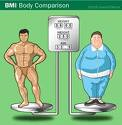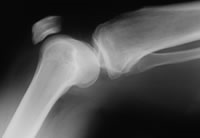
Do you know whether you are obese, overweight or just heavy? According to health research, more than a third of the American population is obese. Similar research conducted in other developing and developed countries shows that cases of obesity are rising rapidly around the world. The rise has been attributed to a change in their eating and other living habits.

What is Obesity? It is an increase in body fat that leads to health problems(Stettler and Shelly, 2009, p.1) If an individual’s Body Mass Index (BMI), that is the proportion of weight versus height is between 25 and 29.9 they are overweight, but if it is 30 and above they are obese. One can be overweight without being obese in the case of pregnant women, bodybuilders or athletes. Obesity measures the amount of body fat that is mostly stored around the stomach, but weight could also come from muscles and bones. Most obese people have big tummies.

Although anyone can become obese, the condition is mainly associated with children, teenagers and young adults (Stettler and Shelly, 2009, p.3). They are more prone to obese since they are more likely to eat foods that have lots of calories and fat at parties, at school or when they are just idle. They are also less cautious when eating unhealthy, starchy and fatty foods(Harris,2009, P. 16). According to data summaries collected in 2007 from USI students, a significant percentage lacked enough sleep and engaged in drinking alcohol, some at higher levels, these two are factors that cause obesity.
Most young people are also not engaging in physical activity or exercise. Household and other chaos are done by machines and even simple things like turning on the TV, and computer and using other devices need minimal movement. The games that are being played today are on computers like video games and this makes them a lazy generation compared to their parents and grandparents. The biggest problem is that they do not realize that they are slowly killing themselves when they consume fat foodstuffs that are unhealthy. Obesity is linked to many health complications like heart diseases like stroke and coronary disease, Bone and cartilage wearing off (Osteoarthritis)

High blood pressure, Diabetes, problems in the respiratory system and sleep complications(Stettler and Shelly 2009 p10). An even greater fear is that some of these diseases are genetic so once you are sick this could affect your children and grandchildren and so on (Harris, 2009, p.12).
Obesity can be treated although prevention of the disease is better. The treatment is aimed at reducing the patient’s weight and maintaining their health once they have achieved it.
Prevention of obesity is simple and straightforward. One needs to make sure that they have a healthy weight, without excessive fats or calories. This is through making sure that they eat the right amounts of food, with the right nutrient content and here a lot of fruits and vegetables are the best foods.


Taking the right amount of water- about eight glasses a day is highly encouraged. Physical activity is also important, engaging in games and other physical exercises that are fun will make sure that one continues doing them and they become a lifestyle to them. Replacing machines in doing simple chaos can also help people who are busy and don’t have time for exercise. Lack of sleep can also be a factor in obesity, it is important to get at least seven to eight hours of sleep a day. Everyone should strive to make sure that they watch their weight and try to keep a healthy amount of body weight. This will reduce occurrences of health complications and led to a better life. ( MediLexicon International, 2004)
When developing this newsletter, there have been challenges in getting information, particularly from journals that needed subscriptions. The formation of the layout was challenging because I did not have enough knowledge of how it is done. There were many sources and choosing the most reliable was also a big task. This assignment has been interesting and I have learned a lot of things that I can apply in my life and that of my friends and colleagues.
References
Harris, N.( 2009). Children’s Health – Combating Obesity. Brighton: Emerald Publishing.
MediLexicon International Ltd.( 2004).What is Obesity? East Sussex: MediLexicon International Ltd.
Stettler, N.& Shelly, S. (2009). Living with Obesity. New York: Info base Publishing, Inc.